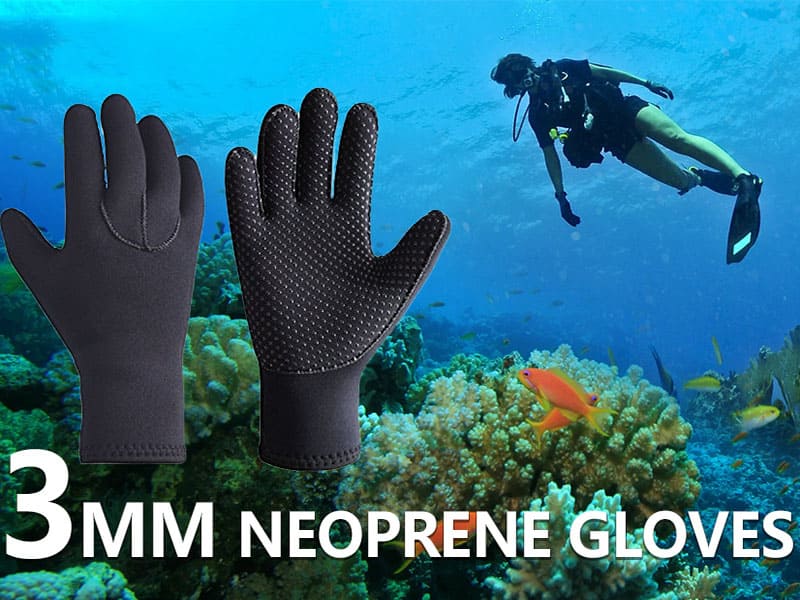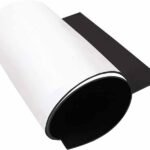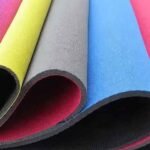The choice between neoprene gloves and latex gloves can be daunting, especially when you need the best material for safety, comfort, and durability. Whether you’re working in a medical environment, handling chemicals, or performing everyday tasks, understanding the unique properties of each material is essential.
Neoprene gloves and latex gloves have distinct advantages, with neoprene offering enhanced durability and resistance to chemicals, while latex provides flexibility and a close fit. Choosing the right glove depends on your specific needs and application.
Let’s delve deeper into what makes these gloves different and how to determine the best choice for your situation.
What Are Neoprene Gloves and Latex Gloves?
Neoprene gloves are made from synthetic rubber designed for durability, chemical resistance, and thermal protection. These gloves are ideal for industries like chemical handling, food processing, and even outdoor activities like diving.
Latex gloves, on the other hand, are made from natural rubber. They are renowned for their elasticity, comfort, and tactile sensitivity, making them a popular choice in medical and laboratory environments.
Neoprene gloves prioritize durability and resistance, while latex gloves excel in providing a snug fit and superior tactile feedback.
Understanding these differences will help you assess which glove is more suitable for your intended purpose.
Comparison of Features
| Feature | Neoprene Gloves | Latex Gloves |
|---|---|---|
| Material Type | Synthetic rubber | Natural rubber |
| Chemical Resistance | High | Moderate |
| Flexibility | Good | Excellent |
| Allergic Reactions | Rare | Common (latex allergy) |
| Thermal Resistance | High | Low |
What is the difference between neoprene gloves and latex gloves?
Neoprene gloves and latex gloves differ in material properties, chemical resistance, and applications. Neoprene gloves are designed to withstand harsh chemicals and extreme conditions, while latex gloves are favored for precision tasks due to their flexibility and thin material.
The main difference lies in their intended use: neoprene gloves are better for industrial tasks, and latex gloves are suited for medical and everyday use.
When selecting gloves, consider factors such as the type of task, exposure to chemicals, and potential allergies.
Applications Based on Material
Neoprene gloves are often used in:
- Chemical laboratories
- Cleaning with harsh solvents
- Food processing requiring heat resistance
Latex gloves are commonly used in:
- Healthcare and medical procedures
- Household cleaning
- Situations requiring precision handling
Is neoprene better than latex?
Whether neoprene is better than latex depends on the application. Neoprene excels in durability and chemical resistance, while latex offers unmatched flexibility and sensitivity.
Neoprene is better for industrial and chemical-heavy tasks, while latex is more suitable for precision work in clean environments.
However, latex gloves may cause allergic reactions in some individuals, making neoprene a safer alternative for people with sensitivities.
Pros and Cons of Each Material
| Material | Pros | Cons |
|---|---|---|
| Neoprene | Durable, chemical-resistant, hypoallergenic | Less tactile sensitivity |
| Latex | Flexible, sensitive, affordable | Allergy risk, less durable |
When should neoprene gloves be used?
Neoprene gloves should be used when handling hazardous chemicals, working in environments with extreme temperatures, or performing tasks requiring high durability.
Neoprene gloves are essential for chemical handling, industrial cleaning, and outdoor activities like diving or fishing.
In any situation where safety and resistance are paramount, neoprene gloves outperform latex gloves in both protection and longevity.
Industries Benefiting from Neoprene Gloves
- Chemical industry: Protection against acids, alkalis, and solvents.
- Food industry: Handling hot liquids or cleaning solutions.
- Outdoor sports: Providing thermal insulation and water resistance.
How do the materials affect durability and flexibility?
The material significantly impacts the glove’s durability, flexibility, and overall performance. Neoprene gloves are thicker and more robust, offering higher durability against punctures and tears. Latex gloves are thinner and more flexible, providing better dexterity and precision.
For tasks requiring strength and protection, neoprene gloves are ideal. For intricate, detailed tasks, latex gloves offer the necessary flexibility.
Testing Durability and Flexibility
- Durability Test: Neoprene gloves withstand harsh chemicals and multiple uses, making them a long-lasting choice. Latex gloves, while durable, may tear under stress.
- Flexibility Test: Latex gloves excel in movements requiring fine motor skills, such as surgery or laboratory work, due to their snug fit and elasticity.
Conclusion
Both neoprene and latex gloves have their place in various industries. Neoprene gloves provide unmatched durability, chemical resistance, and thermal protection, making them ideal for industrial and harsh environments. Latex gloves, with their superior flexibility and tactile sensitivity, are perfect for healthcare and precise tasks.
At Szoneier, we specialize in manufacturing high-quality neoprene gloves tailored to your specific needs. Whether you need gloves for industrial, medical, or everyday use, our products deliver durability and performance. Contact us today to learn more about our customization options and place your order.











